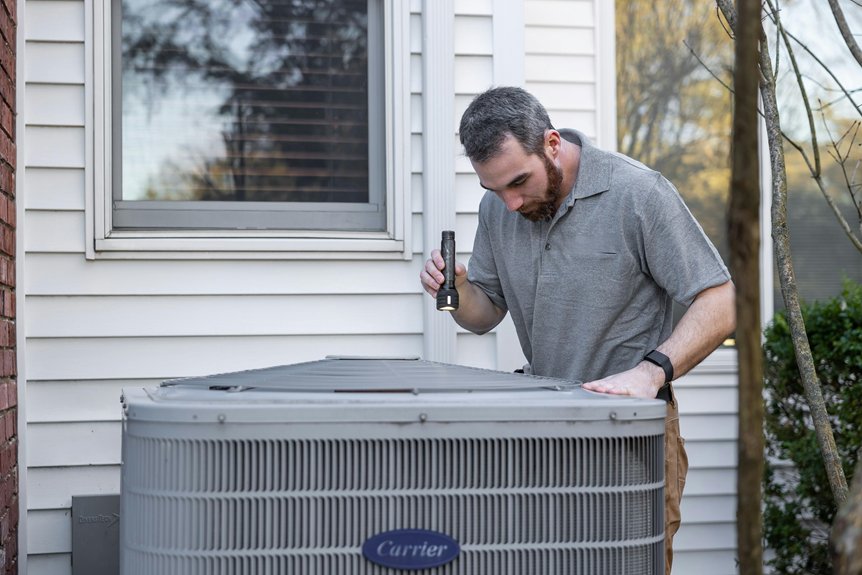HVAC service encompasses the installation, maintenance, and repair of systems that regulate indoor temperature and air quality, which are vital for comfort and efficiency. The industry is experiencing significant growth due to rising demand across residential, commercial, and industrial sectors, spurred by urbanisation and efforts towards energy efficiency.
Innovations such as smart technology and remote monitoring are revolutionising the management and optimisation of these systems. However, challenges such as workforce shortages and the rising costs of equipment persist.
To address these issues, companies are prioritising customer satisfaction through effective communication and dependable service. This focus is reshaping industry standards and influencing customer expectations, highlighting the importance of quality HVAC service in today’s market.
As trends continue to evolve, it will be essential to monitor how they impact both the industry and the experience of the customer.
The Growing Demand for Reliable HVAC Solutions
The demand for reliable HVAC solutions is rapidly increasing in the UK, driven by a mix of economic, environmental, and technological factors. The global HVAC market is on track for significant growth, reflecting strong demand spurred by urbanisation, construction, and energy-efficient upgrades.
In the UK, the HVAC sector is experiencing steady expansion across residential, commercial, and industrial markets. As more individuals prioritise comfort and energy savings, the need for skilled professionals in HVAC service roles is also on the rise.
However, the industry faces challenges, including high equipment costs, supply chain issues, and consumer hesitancy. Despite these complexities, consumers are increasingly expecting reliable and efficient systems that enhance indoor air quality and overall comfort.
This makes dependable HVAC solutions more crucial than ever in today’s market.
Technological Advancements Shaping the Industry
Advancements in technology are swiftly transforming the HVAC industry. Smart technologies such as the Internet of Things (IoT) and remote monitoring now connect HVAC systems to networks, facilitating easier control and optimisation of performance from a distance. Connected HVAC systems enhance performance and reduce operational costs while providing real-time data for better decision-making. Smart thermostats and sensors deliver real-time data on temperature, humidity, and system health, enabling precise adjustments. Retrofit solutions allow traditional systems to integrate into smart networks without requiring significant alterations. AI-driven reports and analytics enhance management strategies and automate building controls, making operations more efficient. Additionally, voice-activated systems improve accessibility for users. These innovations also champion sustainability through the adoption of eco-friendly refrigerants, energy-efficient equipment, and intelligent energy management tools.
Overcoming Workforce Challenges in HVAC Service
Despite efforts to attract more workers, the HVAC industry in the UK continues to face significant workforce challenges. There are numerous unfilled skilled HVAC positions, with demand anticipated to grow due to industry expansion and an ageing workforce.
Many technicians are over 55 years of age, leaving the profession faster than new entrants can join. Each year, a substantial number of technicians retire or switch careers, creating a critical shortage. High turnover rates, combined with the physically demanding nature of the work and the complexity of modern technology, discourage new recruits.
Additionally, limited access to trade programmes and competing industries offering better pay or more favourable working conditions make recruitment increasingly difficult.
To overcome these challenges, the industry is implementing higher wages, training partnerships, and career development initiatives. These efforts aim to build a stronger, more inclusive workforce that’s committed to ensuring comfort in homes and businesses across the UK.
Strategies for Enhancing Customer Satisfaction
To enhance customer satisfaction, HVAC service providers prioritise clear and transparent communication throughout the service process. This approach builds trust and fosters a sense of belonging for clients, making them feel valued and understood. Punctuality and timely updates are crucial; late arrivals or inadequate communication about delays can lead to dissatisfaction. Customers appreciate upfront information regarding costs to avoid unexpected charges, which can be a significant source of frustration.
The following table outlines key communication strategies:
| Strategy | Purpose | Benefit |
|---|---|---|
| Clear pricing explanations | Prevents misunderstandings | Builds trust |
| Accurate appointment information | Reduces late arrivals | Improves punctuality |
| Regular updates during service | Keeps customers informed | Increases satisfaction |
Conclusion
As the demand for reliable HVAC services increases, industry leaders in the UK are continually adopting new technologies and addressing workforce challenges. Enhancing customer satisfaction necessitates effective communication and high-quality service. Keeping abreast of advancements allows providers to meet rising expectations and uphold safety standards.
Overall, embracing innovation, supporting skilled tradespeople, and prioritising customer needs will ensure HVAC companies remain competitive. By focusing on these critical areas, the industry can better serve communities and adapt to future developments, thereby reinforcing its vital role in the UK’s infrastructure.

